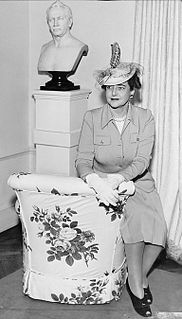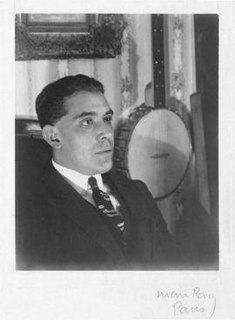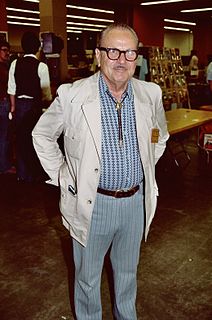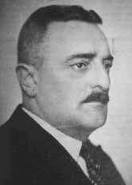A Quote by Paul Cezanne
Everything in nature is formed upon the sphere, the cone and the cylinder. One must learn to paint these simple figures and then one can do all that he may wish.
Related Quotes
May I repeat what I told you here: treat nature by means of the cylinder, the sphere, the cone, everything brought into proper perspective so that each side of an object or a plane is directed towards a central point. Lines parallel to the horizon give breadth... lines perpendicular to this horizon give depth. But nature for us men is more depth than surface, whence the need to introduce into our light vibrations, represented by the reds and yellows, a sufficient amount of blueness to give the feel of air.
Surely with as good reason as had Archimedes to have the cylinder, cone and sphere engraved on his tombstone might our distinguished countrymen leave testamentary directions for the cubic eikosiheptagram to be engraved on theirs. Spirit of the Universe! wither are we drifting, and when, where, and how is all this to end?
It is equally clear that a government must govern, must prescribe and enforce laws within its sphere or cease to be a government. Moreover, the individual must be independent and free within his own sphere or cease to be an individual. The fundamental question was then, is now, and always will be through what adjustments, by what actions, these principles may be applied.
There are some who wish to learn for no other reason than that they may be looked upon as learned, which is ridiculous vanity ... Others desire to learn that they may morally instruct others, that is love. And, lastly, there are some who wish to learn that they may be themselves edified; and that is prudence.
This above all-ask yourself in the stillest hour of your night: must I write? Delve into yourself for a deep answer. And if this should be affirmative, if you may meet this earnest question with a strong and simple "I must," then build your life according to this necessity; your life even into its most indifferent and slightest hour must be a sign of this urge and a testimony to it. Then draw near to Nature. Then try, like some first human being, to say what you see and experience and love and lose.
If we wish to influence our own life in a particular direction, which is constantly threatened by the danger of the emergence of alien life-forms, and protect it from deterioration, then we must either allow Nature to rule or, if we wish to intervene, we must first acquaint ourselves with the simplest principles of life.




































